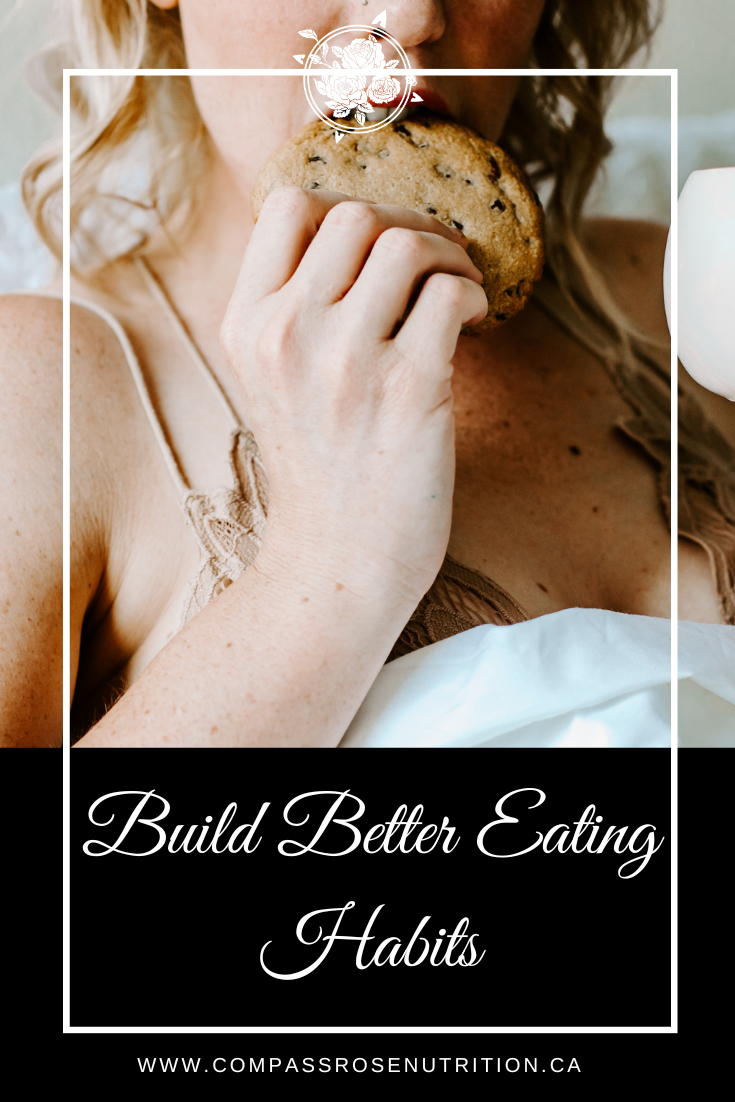Do you ever feel like you have no control over your eating habits? Whether it be emotionally charged, out of boredom, or pure mindlessness while at the table - overeating is something we've all done at some point.
You're not alone; your relationship with food can be tricky and challenging to navigate. One tremendous help is learning to tap into your intuition and use it to improve your relationship with food and balance your eating patterns in a way that feels tailored to you.
Our culture tends to overeat in general with larger portions than ever, but you'd be surprised how much smaller of a portion you can eat and feel satisfied. Somewhere along the way, we've been programmed to eat until we are full, instead of eating enough to satisfy our hunger and return to neutral.
Whatever reason it may be to you, there are some simple tricks you can use on a daily basis to make sure you're more mindful of your consumption and keep things at a healthy level.
Intuitive eating is a way of making peace with food and your body. It's about listening to your hunger cues and eating in response to them, rather than in response to emotion. When you're in tune with your body's hunger signals, you're more likely to make the choices that are right for you.
Learning Your Hunger Cues
Most of us have been taught to eat when we're hungry and stop when we're full. But what exactly are hunger cues? Hunger cues are the physical and psychological signals that tell us it's time to eat. They can include things like headache, irritability, or feeling lightheaded. Paying attention to these cues can help you better understand your body's needs and how to fulfill them. Unfortunately, many of us have become disconnected from our hunger cues, and we often eat based on the clock instead of listening to our bodies.
Pause here for a minute, and ask yourself these questions:
What does your body feel like when you're hungry?
How do you know when you're really hungry, instead of just wanting to eat because it's time for a meal?
Paying attention to these cues will help you start eating only when you're hungry.
Knowing When to Stop
Knowing when to stop eating can be difficult, especially if you enjoy the food. However, overeating can lead to uncomfortable side effects such as indigestion and bloating and can also be harmful to your health in the long run. That's why it's essential to know how to listen to your body and stop eating when you're full.
There are a few cues that you can look for that will indicate that you're getting close to being full. For example, you may start to feel a subtle sense of discomfort in your stomach. You may also notice that you can no longer eat as quickly as you were when you first started. If you're paying attention, you'll likely notice these cues before you reach the point of feeling stuffed. One of my personal signs, is that I sigh. My husband often notices before I do. Can you think of something you do? Maybe shift in your chair, or open your top button. Try pay close attention during your next meal.
If you are ready to start eating more intuitively and build some better eating habits, here’s some of my favorite tricks:
1. Drink more water
This may sound like a no-brainer, but the majority of people just do not drink adequate amounts of water. Dehydration accounts for countless ailments and symptoms we encounter on a regular basis, and you may not even be thinking your water intake is related. For example, hunger and cravings are often dispelled by drinking a tall glass of water. So whether it be getting a smart water bottle that’ll remind you to drink enough water, using a water intake app, or keeping your bottle by your side throughout the day — do whatever is necessary to stay properly hydrated. You’ll find your cravings dissipating, and you’ll be less likely to overeat.
2. Don’t eat while distracted
Whether it’s in front of the TV or while playing with your phone on your lunch break, distracted eating can cause you to eat more than you were planning to eat. Even if you only have a limited portion in front of you, you won’t feel satisfied when you’re done, making you more likely to grab something unhealthy to “fill” you up the rest of the way. Be mindful when you eat, and you’ll find that satisfaction.
3. Write it all down
Sometimes, we’re unaware that we’re overeating, which is even worse. Keep a food journal with you and jot down every little thing you eat, even if it seems minuscule or unimportant. It also helps to note how you’re feeling so you can correct behaviors once you spot a pattern. Grab my Food, Mood and Health Journal for FREE here. Or if you like a real paper journal, then check out my Nourish Journals here.
4. Focus on your portions
Instead of putting all the food on the table for the whole family to grab, portion it out, at least for yourself. You should have a well-rounded meal with plant-based items taking up the majority of it, followed by a lean protein, and then a healthy carb. Choose a smaller plate too so you’ll trick yourself into thinking you’re eating a more significant portion. If you still feel hungry after eating your plateful, take more vegetables.
5. Take it home
And finally, I can’t forget a tip about restaurants. Even with healthy lifestyles, there will be times you go out to eat with friends or family. Don’t order some plain salad that you’re not excited about, a healthy lifestyle doesn’t have to be bland or boring. Make a healthy choice and ask your server to box up half the order from the start or see if someone is willing to split the portion with you. If not, you’ll have another perfect portion for tomorrow, which will make you look forward to lunch! Ordering a healthy appetizer and pairing it with a side salad is another great way not to overeat, but still, leave satisfied.
These little things make a big difference in keeping you from overeating, and they’re so simple to do, they’re effortless.
If you're struggling to eat intuitively, it's okay to seek help from a professional who can help you get started. Intuitive eating is a process that takes time and practice. When you start eating intuitively, you'll likely find that you have more energy, better digestion, and a healthier relationship with food.
If you are trying to pay more attention to your eating habits, your weight goals, and your diet, then grab my FREE Food, Mood and Health Journal, it's the perfect tool to help you keep track, and it comes with a video tutorial to help you get started.




